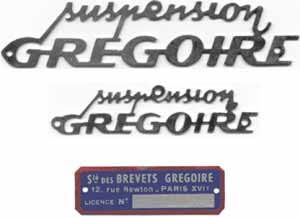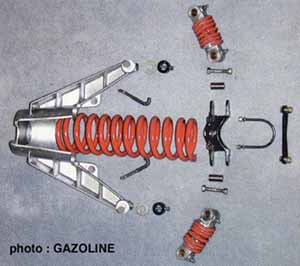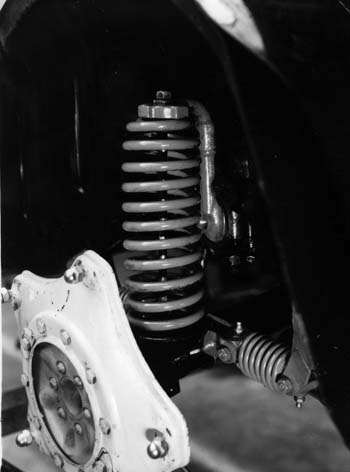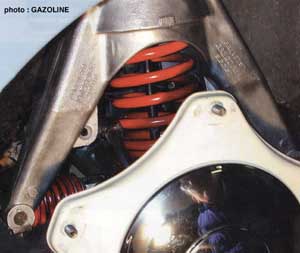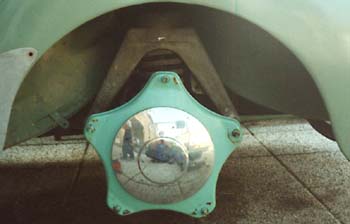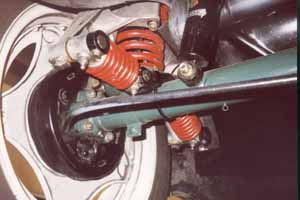I agreed, long ago, to discuss the work of the engineer Jean-Albert Grégoire concerning the suspension of the 4CV. I was intrigued, about two years ago, by an auction sale of a 4CV equipped with this famous Gregoire suspension. Finally, in the spring of that year at the back of a stand at the Reims swap meet, I was offered a new Gregoire suspension kit for a 4CV complete in its original packaging. The deal was rapidly concluded, and a decision was taken to mount the suspension in my 4CV.
The big one is to be installed at the back of the car
The small one is for internal use on the dashboard
The licence plate is to seal near the Renault oval plate in the front compartiment
Set of identification plates comming with a GREGOIRE suspention kit
The Gregoire suspension, called "variable flexibility", is composed of three springs per wheel! The main spring, a little more flexible than that originally fitted, works in the opposite oscillating phase to two other smaller springs. When the main spring is compressed, the two small auxilliary springs are stretched. Everything is triangulated by a cast aluminium top-piece (or 'hat'), a technique dear to our engineer.
Collection des pièces neuves constituant un côté d'une suspension Grégoire. Les deux côtés sont identiques
Prototype de suspension Grégoire (sans la chapelle externe en aluminium) Noter le flaque de roue solidaire de l'arbre de roue antérieur à fin 1949
The first operation to be done was a test on a rear suspension I have as a reserve, to understand the mounting. In effect, there is desperately little literature concerning this suspension, and it was with the assistance of Jean-Jacques Dupuis of the journal GAZOLINE that some technical information on the suspension was gathered. The promises were mouth-watering, and Jean Roger, a very good friend of the 4CV, who has one on his sun roof model 4CV, sold me on the merits of the mounting.
The fitting and the later tests promised to be interesting, and it took the day following the 14 July to install this kit in the "Gazoline" workshop in order to make a photographic report followed by an article in the magazine (No 72 of October).
The mounting by itself took a full afternoon and is described in the magazine, but what is most important is the result.
Simply, stupifying! Since then, the 4CV absorbs vibrations, bumps and silent cops with a simple noise of "flap" without any movement or any reactive oscillation. The rear suspension is now perfectly guided, and there is no parasitic noise.
I have since travelled 2500 km on a variety of roads and autoroutes, with three or four people in the car, and it is a real pleasure.
One could ask why such a mounting was never fitted on these cars. Probably because of the cost of the two aluminium castings, which would have been expensive at the time. Let us simply remember that this work gave birth to the "Aerostable" suspension mounted in series on the Ondines. We no not have any idea of the sale price of this kit in the 1950s, and all complementary information is missing.
Still, a big "thank you" to Jean-Albert Gregoire, that engineering genius, whose works are too little known.
Jean-Pierre DELAUNOY Novembre 2001
English translation from George COOK of RENAULT 4CV REGISTER OF AUSTRALIA
